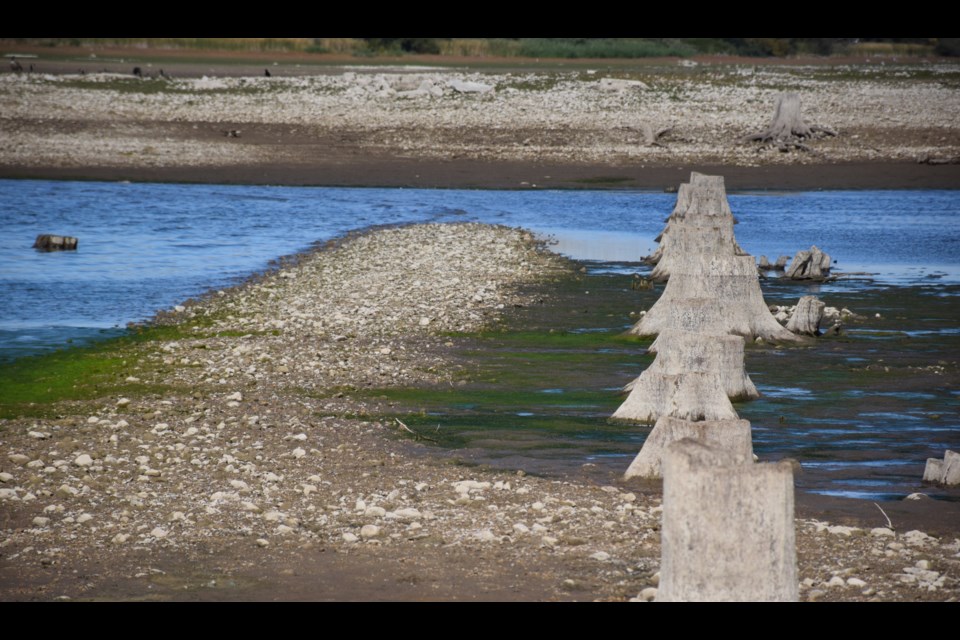A mentality shift, and a policy overhaul appear to be underway at Queen’s Park related to the water-bottling industry, water protection activists said Wednesday.
They were responding to major news that the Province of Ontario is proposing a dramatic increase in the amount it charges water-bottling companies for taking drinking water out of the ground and putting it in bottles. The increase is about 135 times higher than the current charge, although the current rate is miniscule.
The Canadian Press reported that the government is proposing a charge of just over $500 per million litres pumped by water-bottling companies, an astronomical increase given that the current rate is about $3.70 per million litres, a sum water protection activists have long called paltry.
For perspective, Nestlé Waters Canada is permitted to pump a combined 4.7 million litres of water daily from its Aberfoyle and Erin-area wells.
A growing number of Ontario citizens have taken up the anti-water bottling cause in recent years, and have been stepping up pressure on the province to change regulations around the industry. In the Guelph area much of the focus has been on the activities of Nestlé Waters Canada.
The global food and drink giant is looking to secure a new 10-year permit for its water-taking in the Guelph area — with no increase to the amount it pumps — and also has plans to pump water from a former Middlebrook Water Co. well in Centre Wellington, near Elora.
Ontario appears to be listening to the citizens. Late last year, the province placed a two-year moratorium on issuing permits for new wells for water-bottling. The same moratorium was placed on permits for testing new wells, like the one in Elora.
Local water protection activists were asked their reaction to Wednesday’s news of the proposed increased fee.
Mike Nagy, chair of Wellington Water Watchers (WWW), said the proposed fee change is a clear sign that the province is changing its attitude about water-bottling. He said there is a “huge shift” taking place.
“It’s another big message from the province that this industry is being looked at differently, and that these permits are looked at as higher risk permits that are going to be scrutinized in much more detail,” he said by telephone.
WWW is opposed to water-taking for bottling purposes, and especially the plastic waste it generates, he said. The fee charge is a step in the right direction, as were the moratorium, the new $3,000 permit fee, and new groundwater regulations, he added.
“I think this is a signal to that industry that things are changing, and changing big,” Nagy said, adding that a $500 fee is not going to make much difference in the day-to-day operations of a company like Nestlé.
“But it’s one of many steps in changing this industry and the way we’re treating our water,” he added. “But all the money in the world isn’t going to create more water. We’ve only got so much in this area, and we need to be treating it more carefully.”
Amelia Meister started an online petition last year to pressure the government to change the way it thinks about the water-bottling industry. The petition collected tens of thousands of signatures. She would like to see the Province of Ontario bring the water-bottling industry to an end.
“The cost to the bottled water-takers is a non-issue to me,” she said. “It's not about charging them more per million litres, it's about shutting down a superfluous industry that removes a public resource and sells it for profit. As well, it doesn't matter how much money they charge, money will never be able to replace water.”
She added the province should look less at charging more, and more at how to phase out the industry.
Nagy added that the next step in the “huge shift” should be addressing the wasteful packaging the water-bottling industry creates.
He said “massive public engagement and awakening” has influenced the government’s thinking on the issue.
“We need to keep telling the province loud and clear that this a priority, and that public water is a public trust and needs to be defended,” he added.
